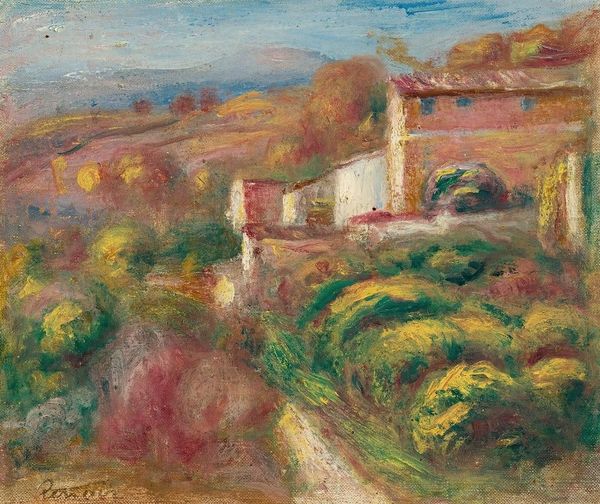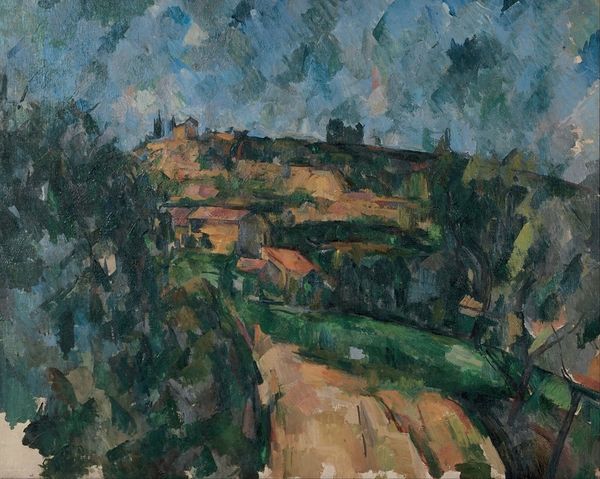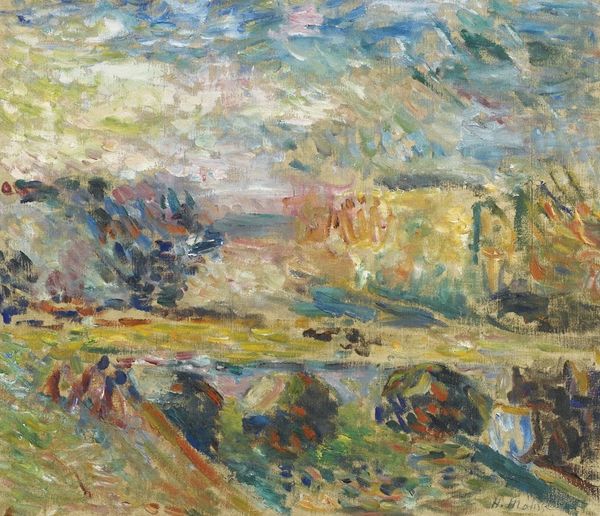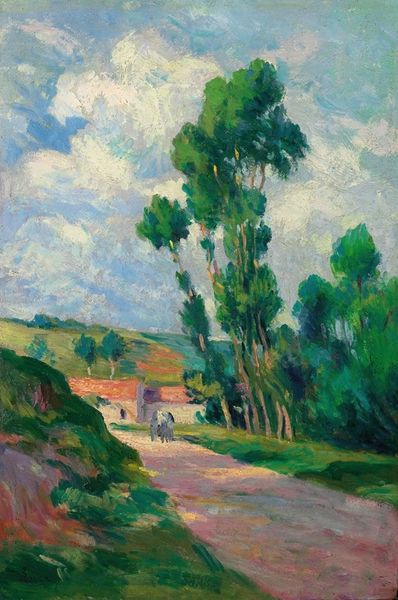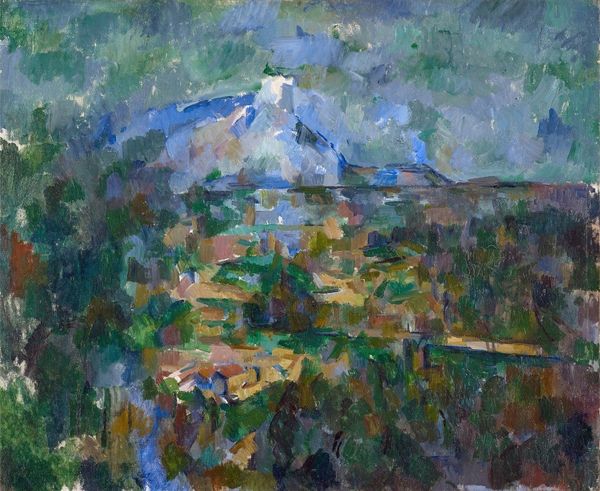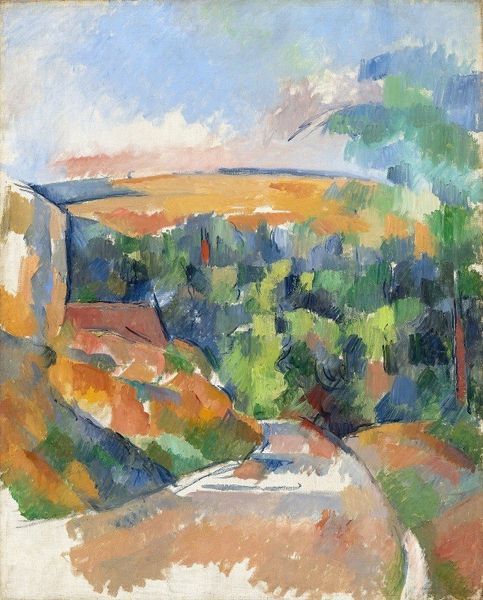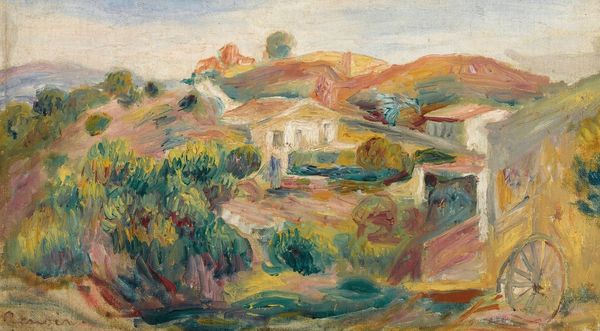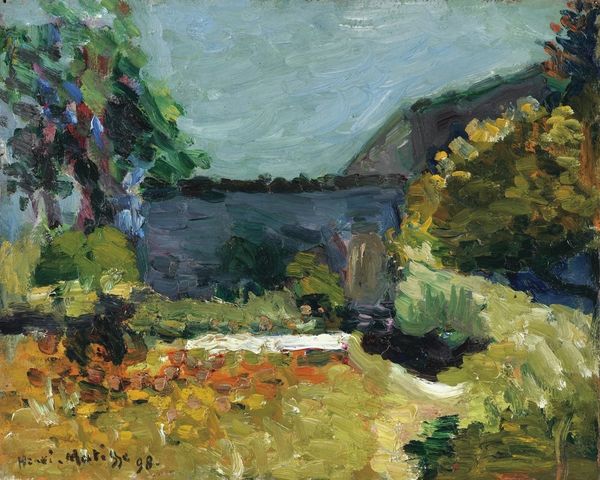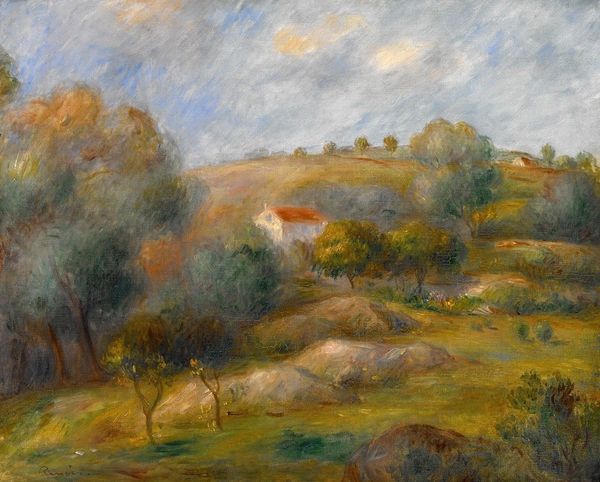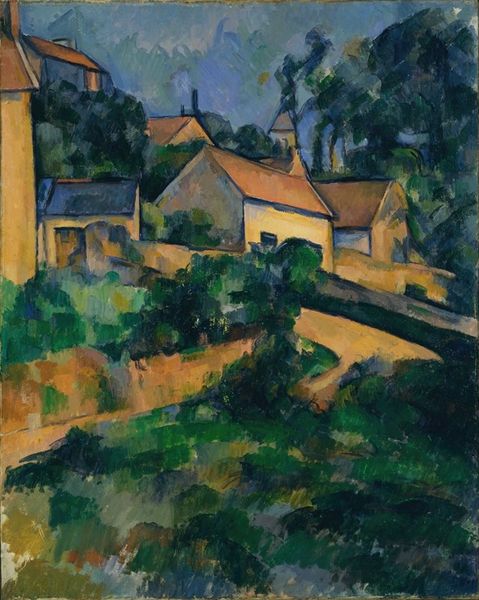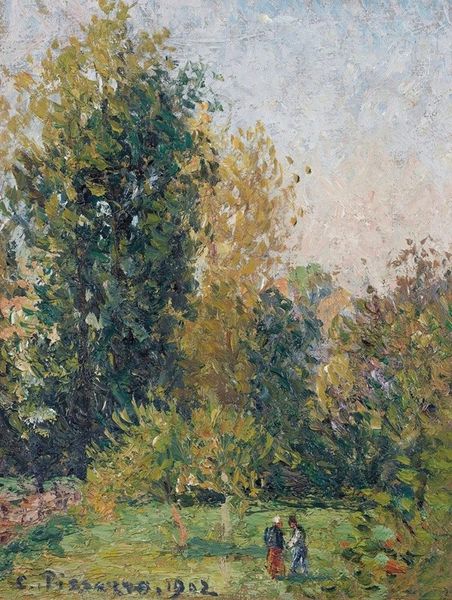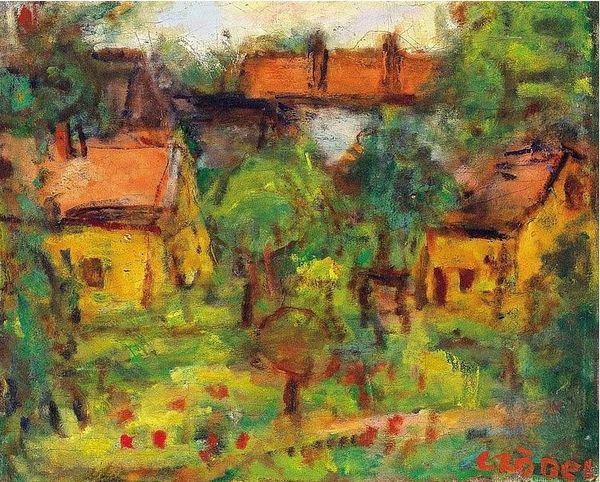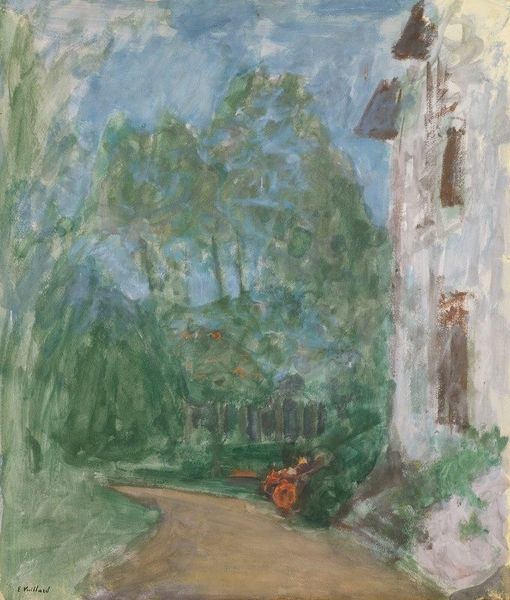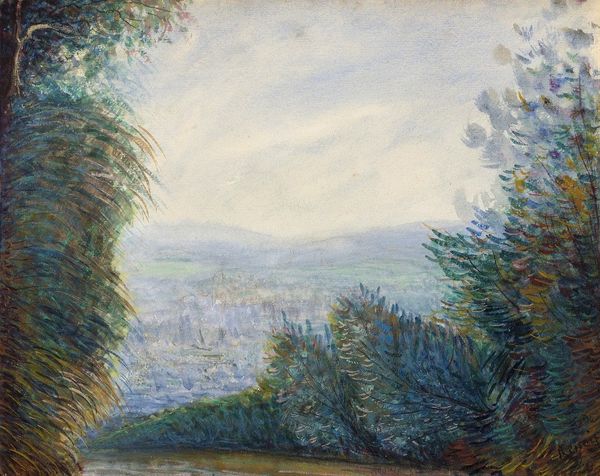
Copyright: Public domain US
Editor: We're looking at Henri Matisse's "Petit Paysage Corse," painted in 1898. It's an oil painting that captures a Corsican landscape. The colours are muted, almost melancholic. How do you interpret this work, and especially, its place in Matisse's broader career? Curator: Well, let's consider Matisse's early work in the context of late 19th-century France. While painting en plein air aligns him with Impressionist tendencies, look closer. What isn't he depicting? This isn’t simply a scene; it’s a site of labor, of resource extraction, perhaps of colonial tensions simmering beneath the surface. The absence of figures, of people actively inhabiting the land, feels telling, doesn't it? Editor: It does. It's like the landscape is both beautiful and… empty. Is it a commentary on the romanticization of rural life? Curator: Precisely. Think about who gets to paint these landscapes, who is excluded, whose stories are silenced. Landscape painting isn't neutral; it is always imbricated in power dynamics. The Corse that Matisse portrays must be placed with broader understanding of French Imperialism in mind. Consider the labor required for that "melancholic" scene to exist. Editor: So, seeing it not just as a landscape, but as a statement about society, makes this painting much more powerful. I'll never see an Impressionist painting the same again. Curator: Indeed. Hopefully, understanding this gives all of us an entryway into looking at art as an arena to unpack complicated relations.
Comments
No comments
Be the first to comment and join the conversation on the ultimate creative platform.
